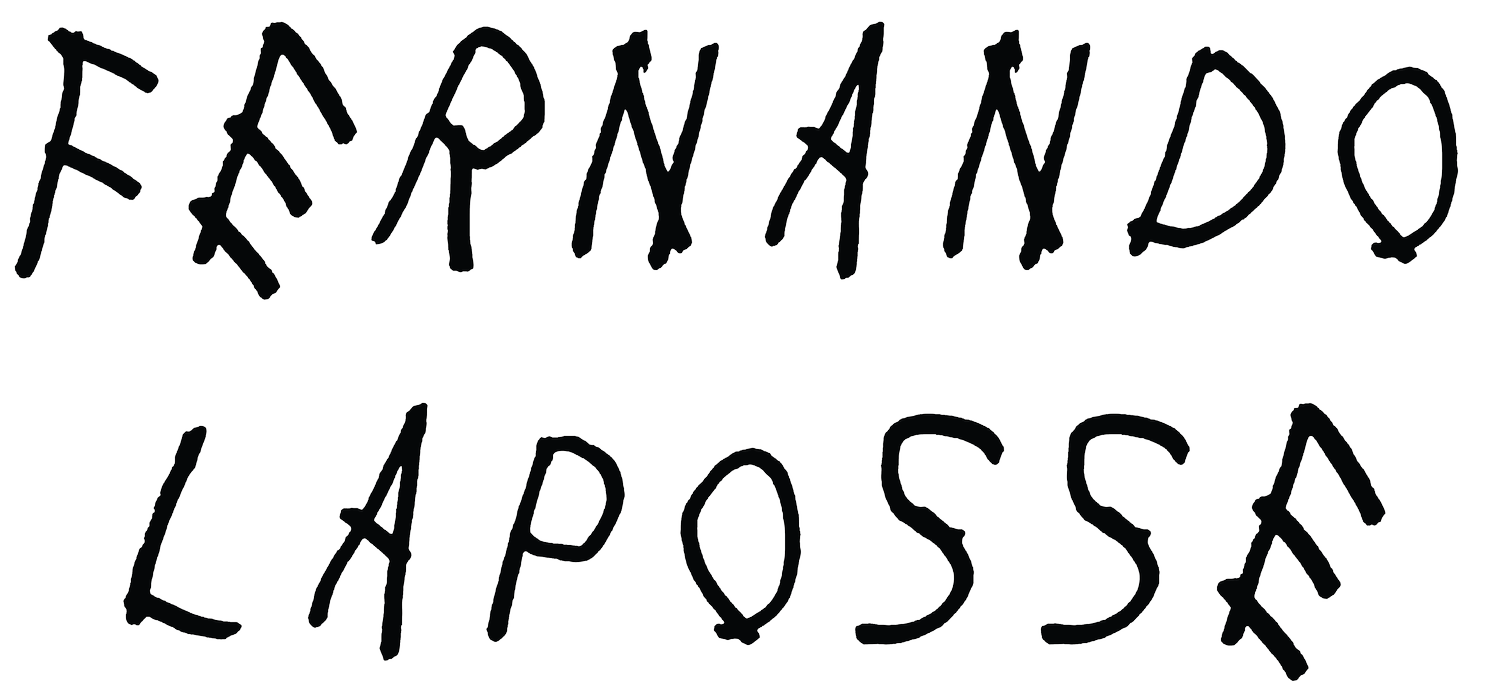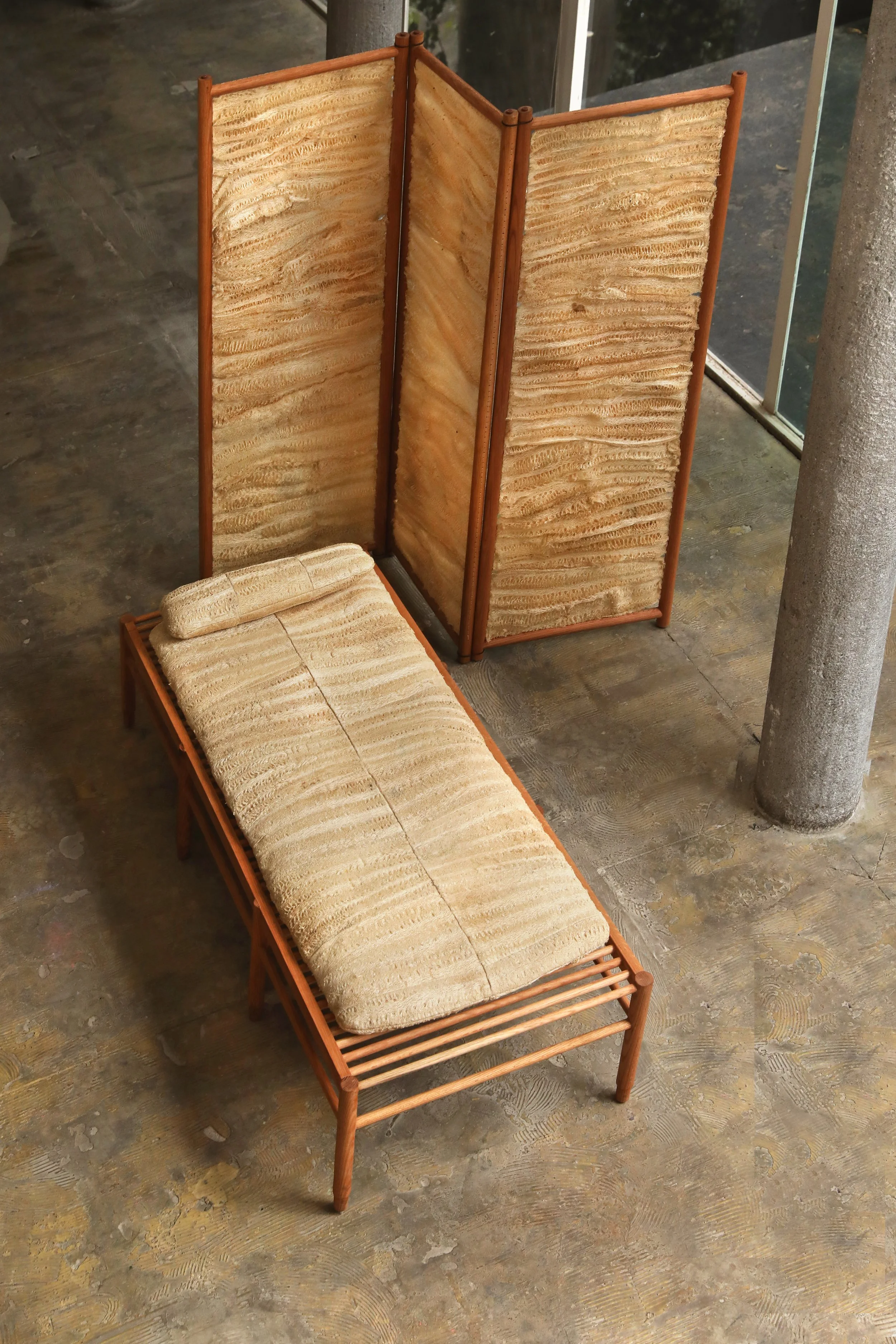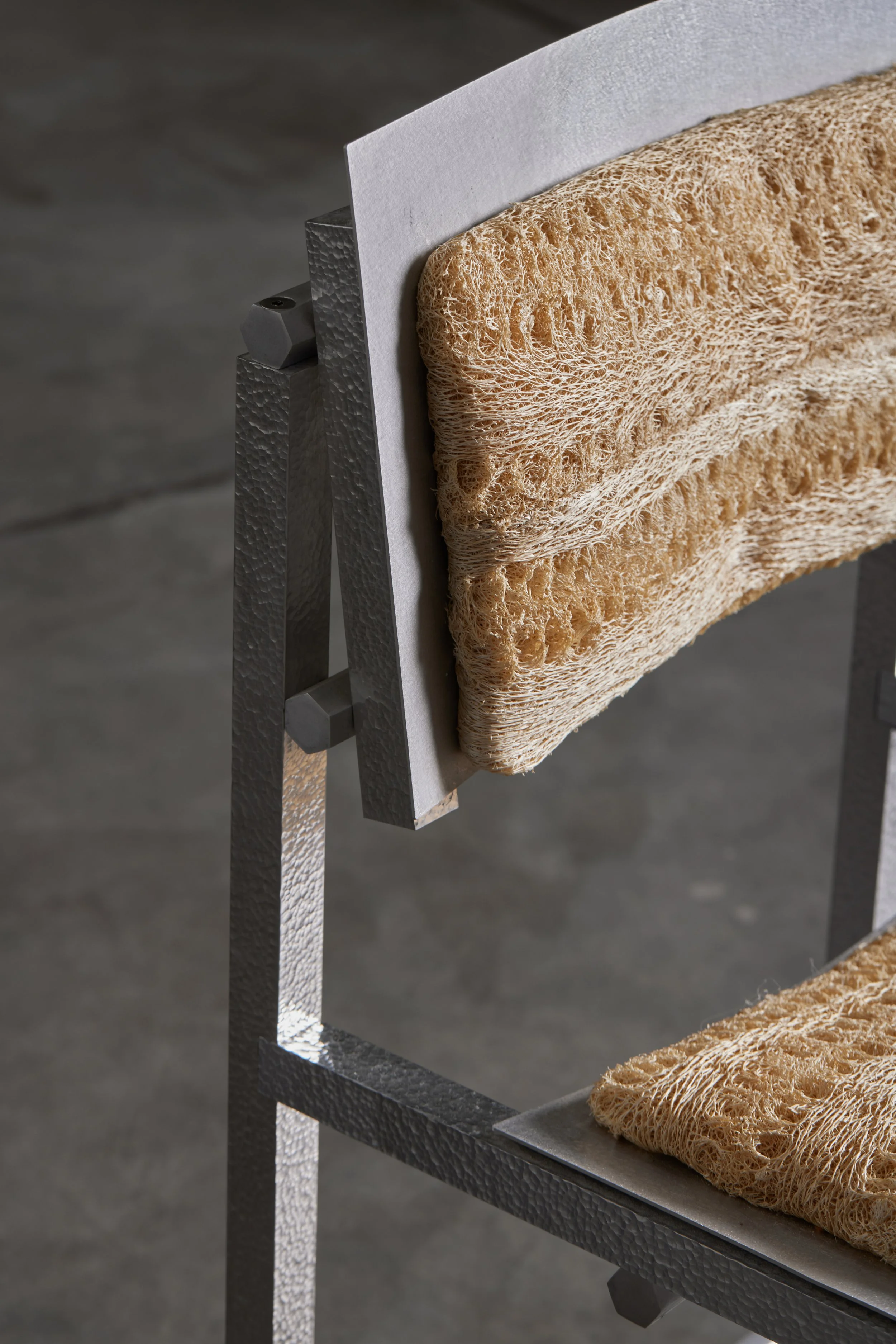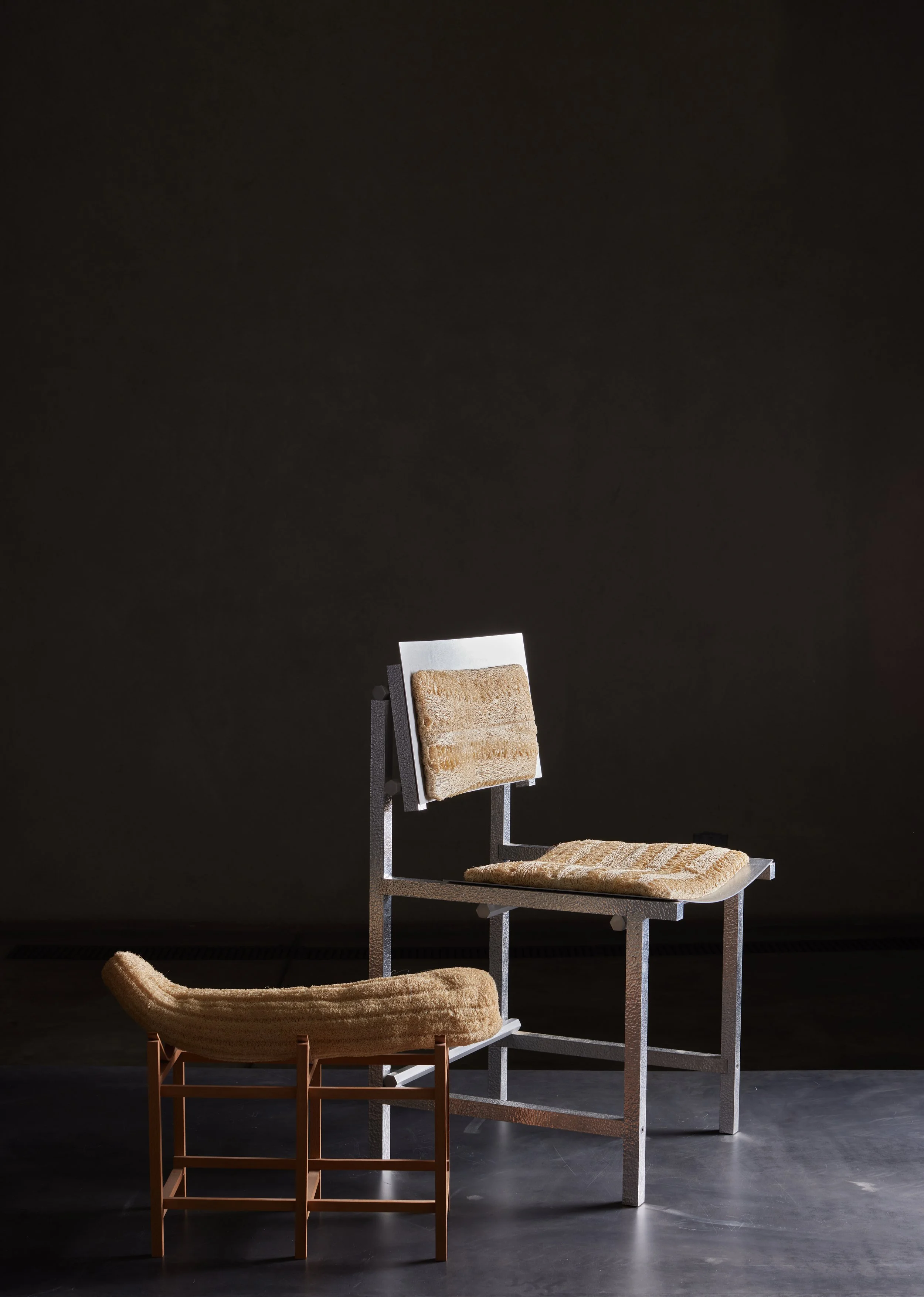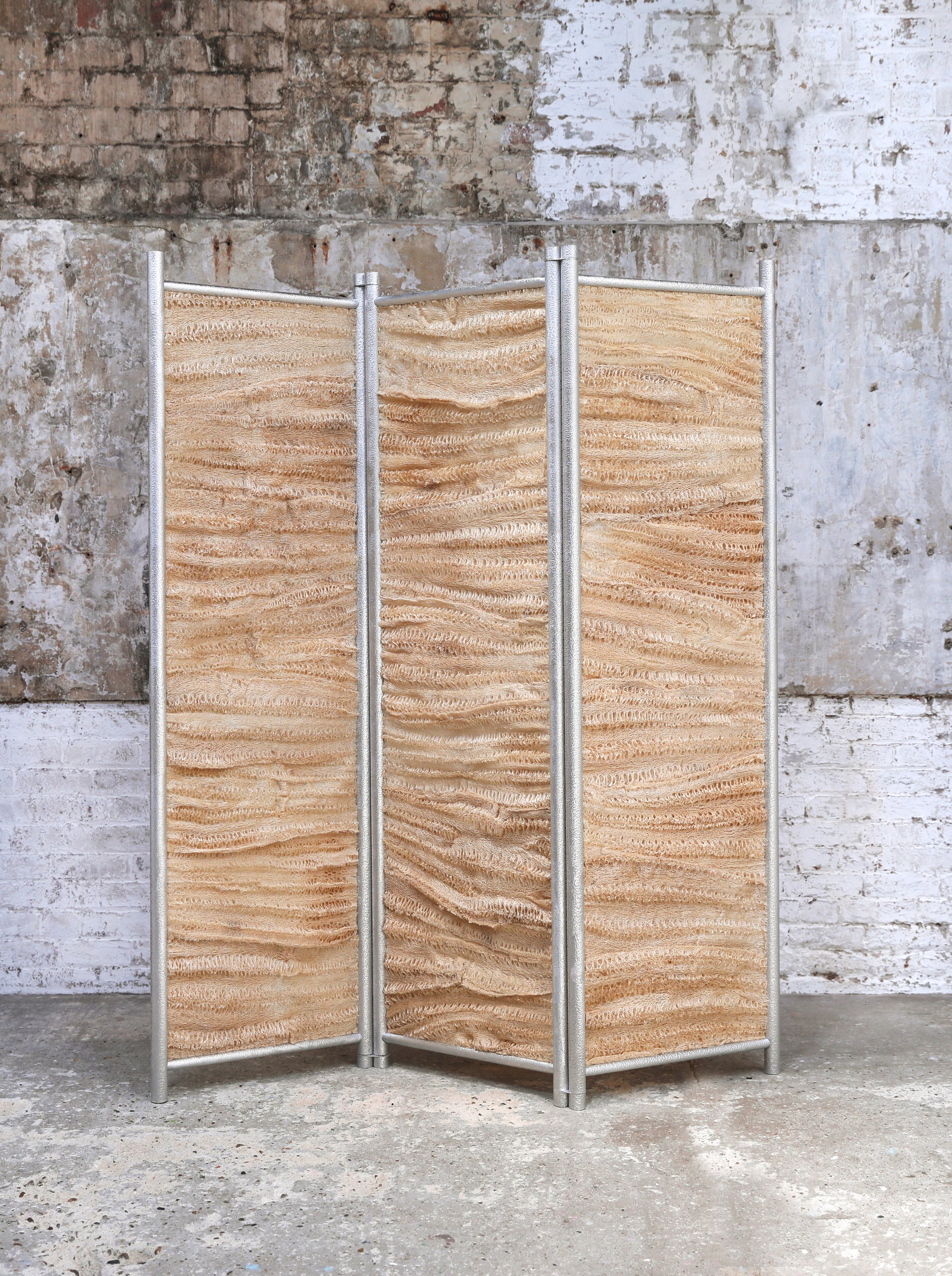LOOFAH
‘Lufa’ is a great solution for multi-functional living and working spaces.
The ‘Lufa Series’ is a self-directed project during Fernando Laposses’ studies at Central Saint Martins, University of the Arts, London. Fernando conducted extensive research on the qualities of loofah, trying to control it to the point that it can be incorporated into functional objects.
We all generally relate loofahs with scrubbing and bathing, however, we wanted to try and change the association with the material beyond the bathroom, introducing it to other applications, so that it could been seen as useful throughout the rest of the house.
The edible fruit grows from a vine and is related to pumpkins and cucumbers, with up to 8000 produced per hectare; when guided vertically, they take up less space. loofah attaches itself to trees and once it matures it is dried and harvested – a process which takes only 6 months – using little nutrients from the soil and leaving no roots, which makes it a very sustainable option in comparison to wood and cork.
We worked closely with a local carpenter in Mexico City for the development of the project whereby he has developed a room divider, lamp, coffee table, hot chocolate set and planters which utilize the plant sponge in their construction. each of these individual designs exploits one or more of the natural material’s characteristics – heat insulation, lightness, shock absorption, texture, translucency etc.
“The making of my Lufa screen made with the natural sponge Loofah, which contrary to what many people think, comes from a fruit and not from the sea. Loofah showcases the design possibilities to repair broken social and environmental systems.”
— Fernando Laposse
For his ‘Lufa’ collection, Fernando cut the medium in a variety of ways, in which he flattens, moulds or sews portions of the dried plant matter into desired forms, combining them with more industrial materials such as cement and wood, as well as terracotta, manipulating the clay and fibrous matter by hand himself for the different pieces he has created. Here, the appearance of the works make the loofah the point of interest rather than the product itself.
